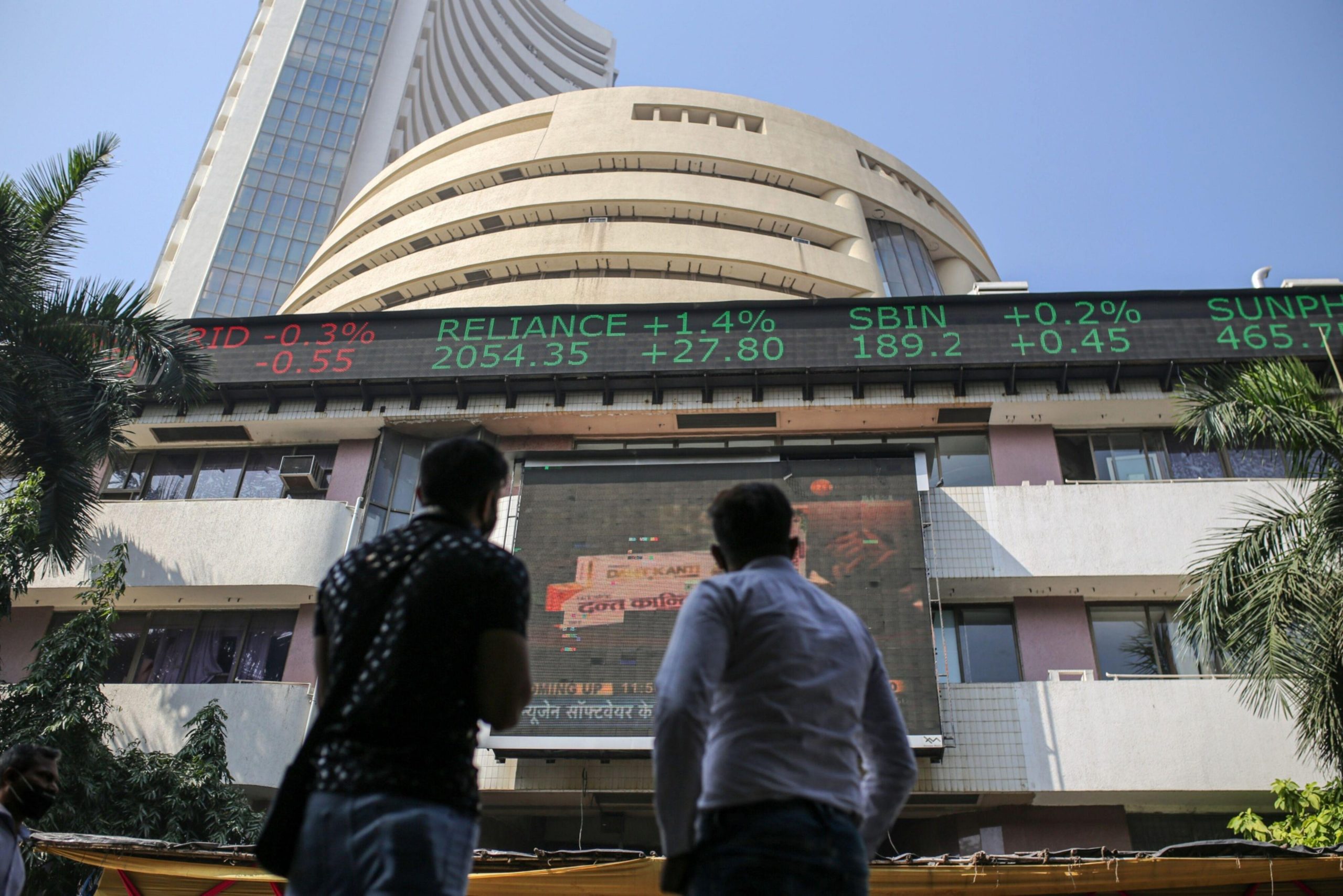Domestic equities posted their biggest decline in more than a month as investors took money off the table ahead of the release of key US economic data.
The Nifty50 index ended the session at 21,951, a decline of 247 points, or 1.1 per cent, the biggest fall since January 23.
Meanwhile, the Sensex ended the session at 72,305, a 790 points or 1.08 per cent fall, the biggest since January 30.
Barring four, all the 30 Sensex stocks have taken a hit. Reliance Industries, which fell 2.1 per cent, was the biggest drag on the index.
The mid and smallcap gauges dropped by nearly 2 per cent each.
The combined market capitalisation of BSE-listed companies fell by Rs 6 trillion — the biggest single-day decline since February 12 — to touch Rs 386 trillion.
Analysts said investors are nervous ahead of the release of US consumer income and the initial jobless claims data.
Market players are grappling with the prospect of delayed rate cuts by the US Federal Reserve and the European Central Bank.
Investors are concerned that the resilient economic activity could lead to higher inflation and reduce the pace of rate cuts.
The domestic gross domestic product (GDP) for the October-December quarter was due on Thursday.
Economists said India’s economy will likely see a bit of slowing due to a deceleration in industrial growth, agricultural output, and consumption.
A robust macroeconomic outlook, sustained domestic inflows, and healthy corporate results led to the rally in equities last year, along with optimism about speedy rate cuts by the Fed and hopes of regime continuity after the general elections.
“Global investors are awaiting the key US economic data like personal consumption expenditure, and there is a fear that the Fed rate cut may be delayed. Turmoil in China’s property sector further impacted the Asian market trend. Profit booking weighed on Indian markets. Rate-sensitive sectors faced pressure, contributing to broader market underperformance, led by overseas investor selling,” said Vinod Nair, head of research of Geojit Financial Services.
On Wednesday, foreign portfolio investors (FPIs) sold shares worth nearly Rs 1,900 crore.
The domestic markets were set to record their second straight month of FPI outflows. So far this year, FPIs have pulled out over $3 billion from domestic equities.
The market breadth was negative, with only 844 stocks advancing and 3,002 declining on the BSE.
The rout in the broader market comes a day after market regulator the Securities and the Exchange Board of India (Sebi) asked fund houses operating smallcap funds to put measures in place to safeguard investors. The Nifty Smallcap 100 index gained over 80 per cent from the March 2023 lows.
Sebi’s move comes amid a surge in inflows to smallcap schemes and growing concerns about valuations.
Apart from the key data releases, the statements of monetary policy officials this week will give investors cues about the market trajectory.
“Nifty has again reached its short-term moving average and has closed below the 21,900 mark. This could change the bias and sentiment can further deteriorate given the prevailing underperformance of the broader indices. Traders should thus plan their exit in existing longs accordingly and strictly avoid averaging to the loss-making positions. For shorting opportunities, prefer the laggards from the respective sectors,” said Ajit Mishra, SVP of technical research of Religare Broking.
First Published: Feb 28 2024 | 7:39 PM IST
Note:- (Not all news on the site expresses the point of view of the site, but we transmit this news automatically and translate it through programmatic technology on the site and not from a human editor. The content is auto-generated from a syndicated feed.))



